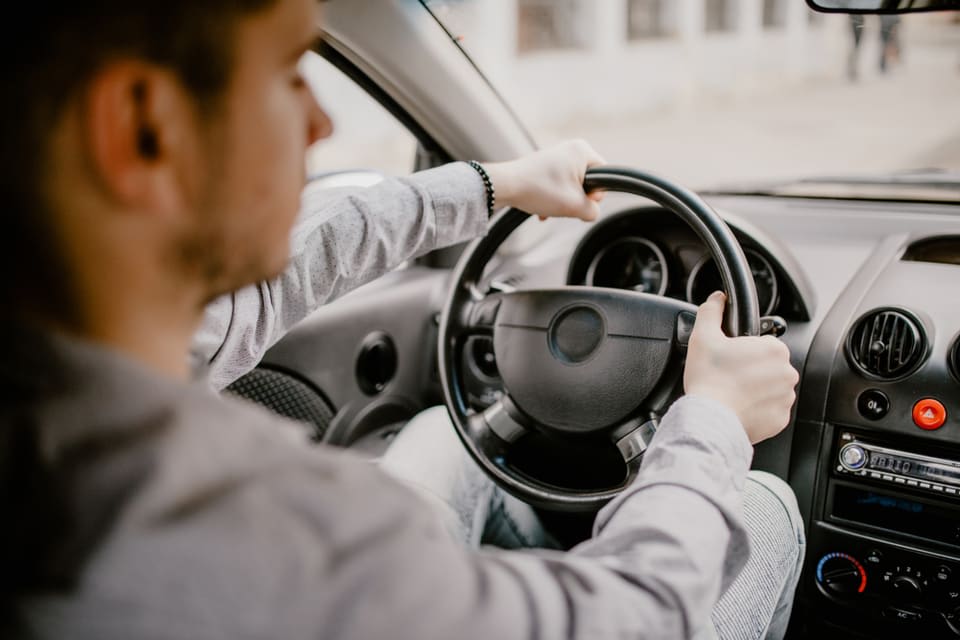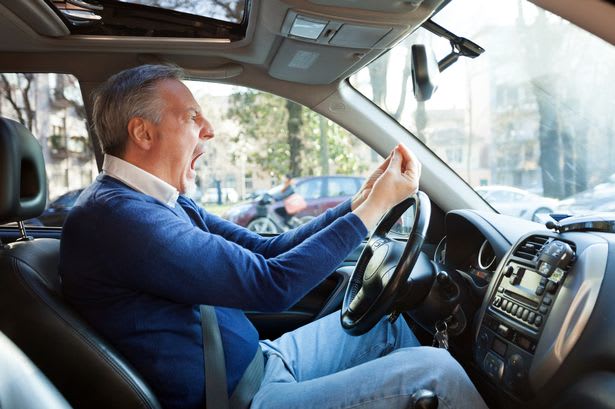DRIVERS who dont indicate for the benefit of pedestrians risk nine points, a £2,500 fine and even disqualification.
Its a massive bugbear for many on UK roads. When a motorist fails to signal when turning into a road, its pedestrians who can find themselves caught like a rabbit in the headlights and in harms way. However, data from our ongoing independent research into the behaviour of motorists, found many drivers are confused about whether theyre even supposed to signal for people on foot or not.
And now those behind the wheel have been warned they risk prosecution if they only signal for other cars.

James OMalley, company director of Select Car Leasing, says: This is one of those bad habits that drive people into a rage. And yet theres still so much debate about whether a driver should or shouldnt indicate so that pedestrians know what theyre doing.
Lets set the record straight, as The Highway Code is clear on the matter. If you fail to indicate for a pedestrian and it ends up with someone being hurt, you can be prosecuted, fined and even have your licence taken off you.
The Highway Code states that, Signals warn and inform other road users, including pedestrians. It also says that signalling does not give you priority. If a pedestrian is already half way across the road youre trying to turn in to, they have priority and you need to wait for them to cross.

While theres no specific motoring offence for failing to signal your intentions to a pedestrian, you could be charged with driving without due care and attention. Thats according to leading UK motoring lawyer Emma Patterson, who says that particular charge could land drivers with up to nine points on their licence and even, in extreme circumstances, disqualification.
Emma, from national firm Patterson Law, says: Drivers need to signal their intentions to all road users, and that includes pedestrians.
Failing to do so may mean a motorist falls below the threshold of being a careful, competent driver and they could be hit with a 'driving without due care and attention charge, or in rarer circumstances even 'dangerous driving.
Emma says driving without due care and attention charge could also result in a fine of up to £2,500, depending on the nature of the incident. She also highlights another common danger - and thats accidents caused through motorists signalling to other road users to proceed.
She adds: In some ways, an over eagerness to signal can be just as bad as failing to signal. Youll typically get a driver flashing their lights or physically indicating that its okay for someone to make their manoeuvre. But you might then get a motorcyclist, whos filtering through traffic, oblivious to the signal and whos then put in harms way. Its a scenario we deal with regularly.
The data, uncovered as part of our ongoing national survey of 1,200 UK motorists, brings further insight into the UKs behaviour at the wheel. And its not the first time we've lifted the lid on our traits when driving.

Our recent survey found that many motorists were unaware that swearing at other road users could also land them with a fine. Under the Crime and Disorder Act, both swearing and performing rude gestures, such as sticking your middle finger up whilst driving are classed as 'disorderly behaviour'.
If you're behind the wheel and get caught flipping someone off you could be slapped with a £1,000 fine, depending on the severity of the road rage. Giving in to road rage can land drivers with a fine due to 'not being fully in control of a vehicle'. And if road rage engulfs you whilst you're behind the wheel of vehicle designed to carry eight or more passengers, that fine will be increased to £2,500.
James OMalley adds: This kind of thing isn't covered in tests, so it's unsurprising when certain drivers aren't aware of some of the finer points of driving laws."

















